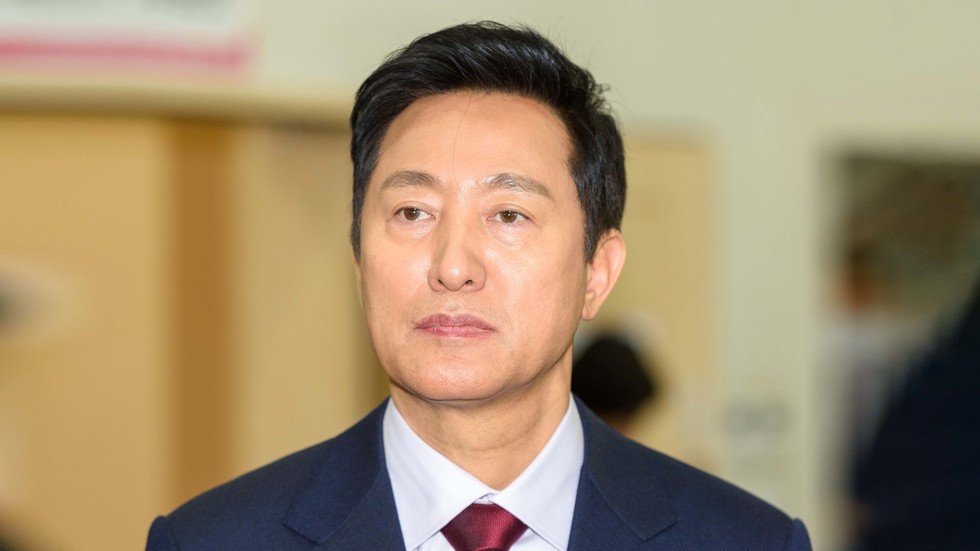In recent statements, Seoul Mayor Oh Se-hoon has articulated a strong stance regarding the need for South Korea to develop its nuclear deterrent in light of perceived threats from North Korea. Oh’s comments come against a backdrop of escalating hostilities, exemplified by North Korean leader Kim Jong-un designating South Korea as a “hostile nation.” Oh expressed his anger and frustration over the North’s repeated menaces and provocations, which he believes are increasingly becoming intolerable, particularly given that South Korea is located just around 50km from the North’s border. He referenced recent incidents where North Korean actions, such as sending balloons filled with trash across the border, causing damage to properties, and even artillery fire near the demilitarized zone, reflect a growing aggressiveness that necessitates a reassessment of South Korea’s defense posture.
Oh contended that the asymmetry in military capabilities between South Korea and North Korea is a significant factor behind these provocations. North Korea’s possession of nuclear weapons, according to Oh, empowers Pyongyang to act with boldness, knowing that South Korea lacks a comparable deterrent. He argued that without a robust nuclear response capability, South Korea remains vulnerable to continued threats and aggression from the North. His call for strengthening the nation’s nuclear deterrence capabilities underscores a broader concern among South Korean officials and citizens regarding national security, especially in light of North Korea’s military developments. Oh’s statements emphasize that an increase in defense measures is essential to achieving long-term peace in the region.
Despite Oh’s prominent advocacy for South Korea to acquire its nuclear weapons, President Yoon Suk Yeol has maintained a different approach. Yoon has consistently stated that South Korea does not intend to develop its nuclear armament. Instead, he has reiterated his commitment to strengthening the nuclear deterrent strategy in partnership with the United States. The U.S. has provided a nuclear umbrella to South Korea since the 1950s, and Yoon’s administration emphasizes continued collaboration to enhance security without pursuing an independent nuclear arsenal. This discrepancy between local political leaders’ perspectives may signal a growing debate about national security strategies within South Korea.
Tensions on the Korean Peninsula have escalated significantly in recent weeks, characterized by North Korea’s threats in response to various incidents, including a crash of a South Korean military drone on its territory. North Korea’s recent military actions, including the destruction of roads and rail lines aimed at solidifying its self-imposed separation from the South, have further fueled anxiety. The North’s declaration of a “grave security situation” reflects a heightened defensive posture while simultaneously attempting to reinforce its narrative of external threats, particularly from South Korea and the United States. Allegations of South Korea sending drones across the border for propaganda purposes further exacerbate tensions, as North Korea perceives increased military collaboration between the South and the U.S. as a direct threat.
Oh’s remarks also resonate with a broader sentiment among certain segments of the South Korean populace who advocate for a more independent military stance. As North Korea continues to develop its military capabilities, including missile tests and nuclear advancements, calls for a reassessment of defense strategies are likely to gain traction. The potential for South Korea to reassess its strategic posture and consider an independent nuclear deterrent remains a contentious issue, as it touches upon historical considerations, geopolitical dynamics, and the regional balance of power. However, significant barriers, both legal and diplomatic, could impede any move toward developing a standalone nuclear arsenal.
In summary, Oh Se-hoon’s impassioned plea for a South Korean nuclear capability reflects deep concern about national security amid increasing provocations from North Korea. While his views underline the argument for asymmetrical military balance in the face of North Korean nuclear threats, they contrast with President Yoon’s administration that leans toward maintaining and reinforcing alliances, particularly with the U.S. The evolving military and political landscape on the Korean Peninsula necessitates ongoing discussions about the direction of South Korea’s defense strategies, fostering an environment ripe for both internal and external debate over the best path forward regarding its security and sovereignty in an increasingly volatile region.

